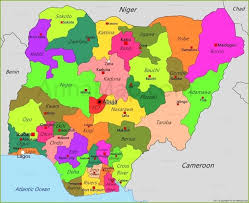Data released by the NBS has shown that Nigeria recorded a Goods trade deficit of ₦1.9trillion in the second quarter of 2021 as imports bills ₦6.9trillion outweighed export earnings of ₦5.1 trillion for the seventh consecutive quarter since Q3:2019. Nevertheless, the deficit in Q2:2021 represents an improvement of 52.6% compared to the Q1:2021 Goods trade deficit of ₦3.9 trillion. This came as export earnings improved by 74.7% q/q to ₦5.1 trillion, while import bills only grew by 1.5%. This is attributed to the improved export earnings in Q2:2021 to further recovery of more activity sectors in Q2:2021 (Q1:2021 – 8) and gains in the average crude oil price to $69.1/bbl in Q2:2021, compared to $61.3/bbl in Q1:2021.
Year to date, Goods trade deficit stood at ₦5.8 trillion, translating to an increase of 157.9% over H1:2020 (₦2.25tn). This was mainly driven by the record high ₦3.9 trillion trade deficit recorded in Q1:2021, fuelled by the impact of the 23.9% devaluation of the Naira (to ₦379/$1.00 vs. Q1:2020 – ₦306/$1.00) on imports, and weak domestic capacity to plug demand gap. Meanwhile, crude oil share of exports earnings increased to 75.2% (₦6.0tn) in H1:2021 from 71.0% (₦4.5tn) in H1:2020, supported by the recovery in crude oil price to above $60.0/bbl (H1:2020 – $42.1/bbl). In terms of region of trade direction, Asia remains Nigeria’s largest imports source and exports destination, with 65.9% (₦6.8tn) and 37.3% (₦3.8tn) share respectively. Of the five regions of trade, Nigeria booked a trade deficit with America (₦573.4bn), Asia (₦3.8tn), and Oceania (₦72.9bn) but reported a surplus of ₦601.7bn and ₦1.5tn over Africa and Europe, respectively.
The trade deficit is a result of the significant increase in import value, which recorded a 22% growth in H1 2021 compared to N11.31 trillion recorded in the previous period and a 60.7% increase compared to N8.59 trillion in H1 2020. Despite recent data indicating improved inter-border trade activities, it is increasingly becoming a major forex burden for the country as scarce forex is still being used to import merchandise, while earnings from exports continue to dwindle.
Nigeria imported Motor Spirit Ordinary (petrol) valued at N1.47 trillion between January and June 2021, followed by durum wheat with N583.02 billion in the same period. Nigeria imported used vehicles valued at N498.94 billion, other antibiotics (N480.98 billion), gas oil (N273.41 billion), and machines for reception (N261.73 billion). Others include motorcycles and cycles N213.3 billion, cane sugar (N204.91 billion), other herbicides (N145.51 billion), lubricating oils to be mixed with, N140.42 billion.
Nigeria exported crude oil valued at N4.08 trillion in the second quarter of the year, taking the aggregate exports to N6.01 trillion in the half-year period, followed by liquefied natural gas with N887.2 billion, floating vessels N152.95 billion, other petroleum gases N121.28 billion, good fermented Nigerian cocoa beans with N86.99 billion. Others on the list include helicopters, sesamum seeds, cashew nuts, urea, propane amongst others. Nigeria’s continual foreign trade deficit continues to pile more pressure on the country’s exchange rate as negative trade dampens Nigeria’s current account position and the foreign reserves. Despite, moves by the federal government and the Central Bank (CBN) to diversify the economy and create substitute export value for crude oil, it seems to have not reflected substantially in Nigeria’s international trade numbers.

